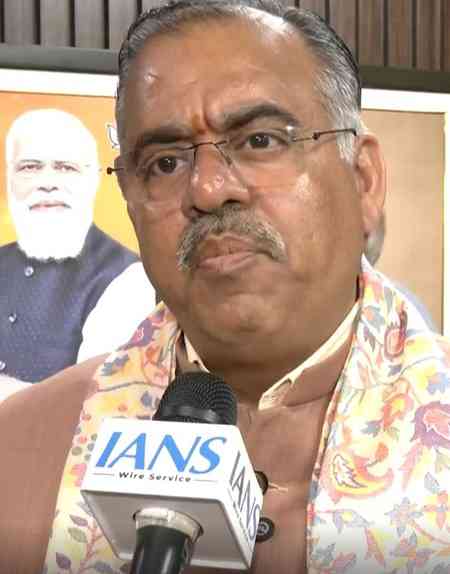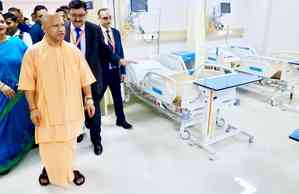Congress weakened India’s industrial growth, BJP’s Amit Malviya hits back at Rahul Gandhi
The BJP has launched a sharp attack on Congress leader Rahul Gandhi, accusing the party of stifling India's manufacturing potential for decades through the 'Licence Permit Raj' and continuing its legacy of economic mismanagement during the UPA era.

New Delhi, Feb 5 (IANS) The BJP has launched a sharp attack on Congress leader Rahul Gandhi, accusing the party of stifling India's manufacturing potential for decades through the 'Licence Permit Raj' and continuing its legacy of economic mismanagement during the UPA era.
BJP IT cell chief Amit Malviya was responding to Rahul Gandhi’s criticism of the Modi government’s manufacturing policies, arguing that the Congress had left a legacy of stagnation in India’s industrial growth.
Rahul Gandhi, in a post on X, pointed out that Prime Minister Narendra Modi, in a recent speech, did not mention the 'Make in India' initiative.
"The PM should acknowledge that ‘Make in India’, although a good initiative, is a failure. Manufacturing has fallen from 15.3 per cent of GDP in 2014 to 12.6 per cent -- the lowest in the last 60 years," Rahul Gandhi claimed.
In a strong rebuttal, Malviya accused the Congress of failing to lay a strong foundation for India’s manufacturing sector during its rule.
"It is good that Rahul Gandhi has finally acknowledged a fact the entire nation already knew -- that even after a decade in power, the UPA utterly failed to create jobs or strengthen India’s manufacturing base," he wrote in a post on X.
Highlighting past failures, the BJP leader cited a major missed opportunity under the UPA government:
"A perfect example of Congress’ disastrous approach to manufacturing is what happened in 2006 when Intel sought to establish a multi-billion-dollar chip plant in India. The UPA government kept delaying the necessary policy decisions, forcing Intel to take its investment to China and Vietnam instead. That single failure set India back by decades in semiconductor manufacturing. Now, under Prime Minister Modi’s leadership, India is aggressively building its chip manufacturing ecosystem, ensuring such costly mistakes are never repeated," Malviya said.
Rahul Gandhi, in his post, laid out a vision for reviving India’s manufacturing sector, emphasising the need to focus on emerging technologies.
"This vision for production in India must also have a specific focus on emergent technologies like electric motors, batteries, optics, and AI. This is the only way to revive our manufacturing sector, develop cutting-edge manufacturing ability, and create the jobs we need."
He further noted that China’s industrial dominance gives it confidence on the global stage and argued that India must build a strong manufacturing base to compete.
"China is 10 years ahead of us and has a stronger industrial system -- this is what gives them the confidence to challenge us. The only way to compete effectively with them is to build our production systems, and for that, we need vision and strategy," Gandhi said.
Responding to Rahul Gandhi’s claims, Malviya pointed to employment data, asserting that manufacturing sector job creation has significantly outpaced the Congress era.
"Here is a hard fact -- RBI KLEMS data shows that employment in the manufacturing sector grew at twice the pace in the last decade compared to the UPA era. From 2014 to 2024, an additional 17.9 crore jobs were created -- compared to just 2.9 crore from 2004 to 2014," he said.
Malviya contrasted the Modi government’s reform measures with what he described as Congress’ policy paralysis, listing several initiatives such as the PLI Scheme, regulatory reforms, investments in manufacturing, etc.
He also highlighted key sectors where the Modi government’s initiatives have led to substantial growth, such as telecom equipment manufacturing, which he claimed surpassed Rs 50,000 crore in sales under PLI, pharmaceutical exports, the drone industry, and the automobile sector.
"Congress’ approach was to lament problems. The Modi government solves them. The numbers speak for themselves -- manufacturing is growing, jobs are being created, and India is becoming a global production powerhouse. Rahul Gandhi may have finally admitted the UPA’s failures, but India has already moved on from that lost decade," Malviya added.


 IANS
IANS 










